Shadows of Doubt DevBlog #25: Closed Alpha Conclusions
Shadows of Doubt is a detective stealth game set in a fully-simulated sci-fi metropolis! There’s been a murder and it’s up to you to solve it by any means necessary, with the condition that you keep a low profile. A unique mix of procedural generation and hand-crafted design enables every room of every building to be explored. Be sure to wishlist on Steam, join our Discord or read previous dev blog entries here!
Hello everybody! I hope everybody is enjoying their summer; we here on the Shadows team have almost finished collecting all the feedback and data gathered from our limited closed alpha at the time of writing. We’ve learned a lot and there’s so much to talk about that I thought it was probably time for another dev blog update.
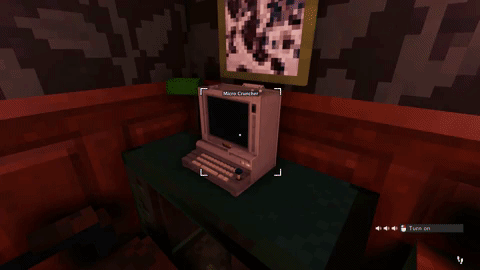
Why a limited closed alpha?
Initially, we wanted to have a slightly more open alpha, but given the stage of development the game is at right now we didn’t want to be overwhelmed with feedback. We thought a smaller amount of more in-depth feedback and a close look at how players were interacting with the game would be the most beneficial. We chose the relatively low number of 250 participants and the Go Testify service we worked with to get as much info as possible. For obvious reasons we haven’t been able to demo the game at any game shows as of late, and I personally find them really helpful to look at how folks are interacting with the game: So I’m really happy that our closed alpha mimicked this type of feedback pretty closely.
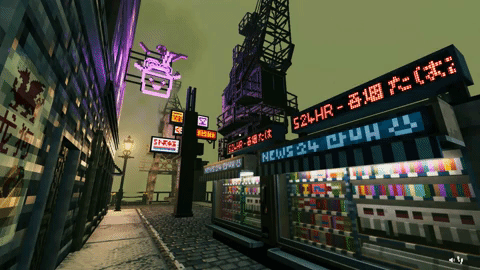
So what did we learn? Some of you reading this may have played the alpha, but many may not have, so I’ll give as much context as possible so this makes sense. I’ll probably spend more text talking about what needs work rather than what we’re getting right, so it might seem a little imbalanced but rest assured this alpha has really bolstered my confidence in where we’re at and where to go (so it was easily worth it for that alone).
I’ll start by addressing the most obvious thing and give it it’s own paragraph; the game was very buggy. Ideally, I would have liked to get it into a better shape before pushing the big red button, but I fell into the classic game dev time management trap of thinking some things would take a shorter amount of time than they ultimately did. So thanks to everyone who played and put up with the bugs. We think we’re aware of just about all of them now, so it will be a case of working through them during the rest of development.
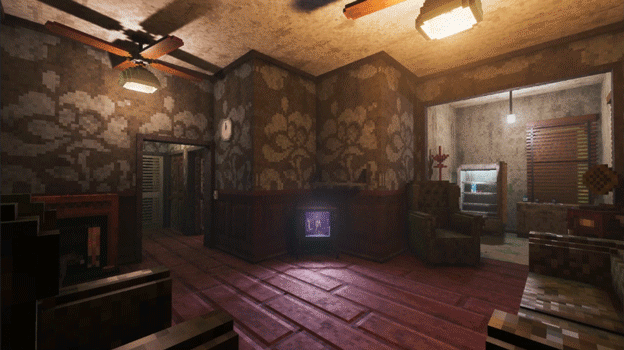
What did people like?
- It was very rewarding to see people spend time in and generally enjoy the world we’ve created. Each of us, perhaps above all, wanted to create somewhere that felt really atmospheric, and I think in that respect we’re 100% on the right track, and we’ll continue to create this weird dystopic world of Shadows.
- Minus some obvious bugs, the proc gen was working to create some interesting scenarios, and broadly speaking a world that players wanted to explore.
- The game often kept people playing past (sometimes way past) our planned 1-hour target.
- We’re really pleased with some of the ‘oh wow’ moments players occasionally get, but I actually don’t want to spoil any in the blog.
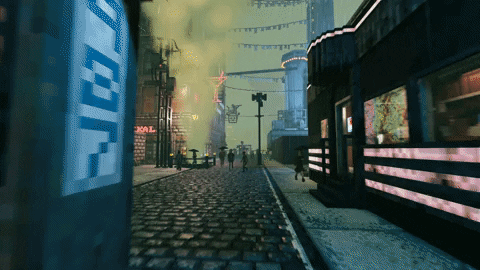
What do we need to work on?
- The user interface caused some problems: Some things just weren’t quite intuitive or obvious enough and we’d really like to improve this so players can interact with the game properly. It’s a super important thing to get right. The community has already provided some fantastic ideas, and we’re now able to learn a lot by looking at the closed alpha screen recordings.
- The tutorial level still needs improvement and iteration: Too much information is being presented to the player at once, silly oversights on my part are causing confusion, and there aren’t enough safe opportunities for players to experience stealth, sneaking or breaking and entering mechanics.
- The tutorial also lacks prompts towards the end, and there is definitely not enough end-of-case feedback. We want to revise the way cases are concluded including giving the players some clear objectives from the start about what they are aiming to achieve in the case. Note: This is different from ‘hand-holding’, which we don’t really want to do more of.
- Features that are planned but just weren’t ready in time for the alpha were causing some frustrations, especially key mapping along with some other control options.
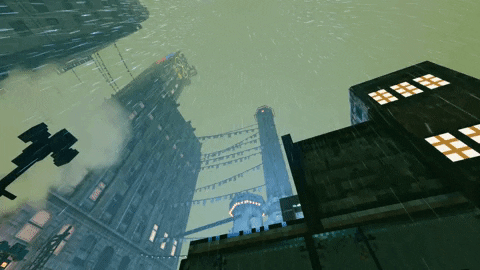
What would be good to build upon or pivot more towards?
- It was wonderful to see how a lot of players liked to live and roleplay within the world. We’re pretty keen to enable this, so we’d really like to give the everyday items in the game more meaning through carefully handled status effects (these will often be buffs or minor debuffs so as not to interfere too much with the investigative element of the investigative element the gameplay). We like the idea of something like grabbing a coffee if you’re tired; it gives meaning to some of the world elements we’ve worked hard to bring to life. There are certain other gameplay aspects largely not talked about yet that I hope will also lend well to this. I’m actually super excited about this side of things because it lets me play around with the kind of smaller-scale detail that I get a kick out of.
- The city needs to be bigger and features more variations. In the alpha the city was small, largely due to the game being unoptimized. We’re really keen to open up the world some more and give you more to explore; it’s one of the first things on our list. A bigger city also naturally opens up the gameplay, so I’m super keen to get this rolling.
- People enjoyed the systemic gameplay, but in many places, the AI wasn’t up to the task; it needs more iteration and a variety of reactions to create interesting scenarios. One example that came up quite a lot was their reaction to dead bodies- they kind of don’t so much right now. We’re keen to remedy that along with more varied reactions to violence and catching the player.
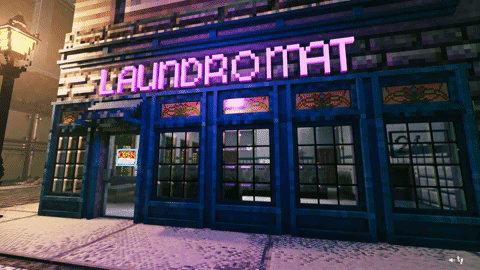
So there we have it. Is something you fed back not on the above list? We’re likely aware: I have plotted just about everything mentioned in a feedback tracker and the above are just the broad strokes. There are dozens of nuances and smaller things that I’m confident will get done or addressed in some way.
Lastly, I’d like to thank everyone who participated; your feedback is valuable and your ideas are appreciated. It’s sometimes not so easy to dive into feedback on something you’ve been working on closely for years, but just about everything said was constructive and there was a hell of a lot of great and realistic ideas for improvement, so I’ve been really chuffed with that. I’d also like to thank those that didn’t get a chance to play- we chose a random selection as we thought that would be fairest. Rest assured that when you play the game will be in a far superior state. Ears will be open throughout the rest of the development process.